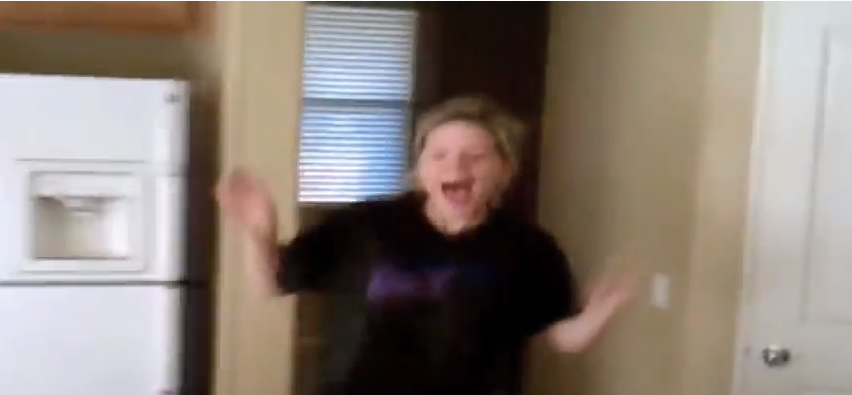Well, I don’t know about you but my weekend was wet and windy and, compared to of late, pretty darn chilly. At least for August. Had it been more clement, I would probably have busied myself with one or two little jobs that are awaiting my attention outside. Or I might have taken a languid stroll around the park. Alas, Hey Ho! the weather kept me indoors. So what better way to spend a wet Sunday afternoon than to watch an old sun-drenched western, particularly one directed by Anthony Mann whose CV includes some of the finest of the genre ever made.
While it may be easier to recall the more famous Mann westerns starring James Stewart, of which there were five (starting with Winchester ’73 in 1950 and ending with The Man From Laramie in 1955), The Tin Star, made two years later, stars Henry Fonda and Anthony Perkins. This time, instead of one main protagonist – the emotionally tortured soul that Steward embodied so well – here we have two main characters – Fonda’s laconic and sagacious bounty hunter and Perkins’ young and inexperienced town sheriff. There are no sweeping vistas of snow-capped mountains, beautiful pine sided valleys or white-water gorges here either, an element that Mann captured so beautifully in those earlier films. Indeed, in complete contrast to the Stewart films, there is no travel at all involved for the characters here, not in a geographical sense anyway. The only journeys undertaken are in the characters of the characters, if you get my drift.
It is dialogue that drives this movie forward more than an cross-country pursuit peppered with gunfights, that and the influence that Fonda’s age and experience has on Perkins’ naivety. Apart from a couple of forays out into the surrounding dusty countryside, the action takes place in a little old town in the middle of nowhere. It’s shot in black and white too which seems to add to the film’s parched appearance. Also worth noting is that the film opens with a shot of the town’s main street as Fonda trots in on his horse and closes with exactly the same shot with him riding out in a buggy. Whether Mann meant anything by this is down to one’s interpretation.
And so to the plot. Morgan Hickman (Fonda) rides into town with a dead outlaw slung over his pack horse. He goes to the sheriff’s office to claim the bounty on it. The townsfolk don’t want him around because bounty hunters are bad news. Ben Owens (Perkins) has been appointed temporary sheriff by the townsfolk (the last one having been killed) on account nobody else wants the job. Nobody that is, but the town bully Bogardus (Neville Brand) who would use the post as a licence to kill.
Owens is a likeable young man with a rather unconfident manner and a sweetheart who won’t marry him while he’s wearing a star and Bogardus is a distinctly nasty piece of work who has the townsfolk standing behind him because they’re all afraid of him. He is a racist bully and it’s not long before he shoots an Indian in the back claiming it was self-defence. Owens swallows hard and steps forward to do his job but Bogardus resists arrest, prompting Hickman to step forward and lend an experienced hand.
Hickman has to stick around a day or two while his bounty claim is processed and gets lodgings with widow Nona Mayfield (Betsy Palmer), a young woman who lives just outside of town with her son, a half-Indian boy named Kip (Michael Ray). Strong feelings rapidly develop between Morgan and Nona and Kip is thrilled to have a father figure around.
With Bogardus released from jail after witnesses claim he did indeed act in self-defence, the young sheriff asks Hickman for some coaching on how to become a better sheriff. Hickman, at first reluctant, telling Owens to quit while he still can and go marry his girl, has a change of heart when he admits to having once been a lawman himself before turning bounty hunter. For all his naivety, Owens is a decent, upstanding man but simply lacks the basic knowledge of being a lawman. He has the heart but not the tools. So Hickman begins to advise the younger man.
Later, the town doctor is murdered by two brothers and the town demands justice. Owens is adamant he wants to bring the perpetrators back alive so they can face a fair trial but Hickman is certain that filling them with lead is the only way the brothers will allow themselves to be brought in. Bogardus takes off with a large posse to capture them, his intention to string them up from the nearest tree.
With Hickman’s help, the brothers are taken alive by the sheriff and thrown in jail. But the rowdy posse – headed by Bogardus – threatens to storm the jail and hang the brothers in the street. Owens, having learned much from Hickman in the last few days, faces the crowd and Bogardus and soon earns the respect of the town. He is now the competent lawman he wanted to be. The film ends on a happy note with Hickman riding out of town to start afresh somewhere else a changed man, with a new woman and a young boy beside him.
Overall this is a very good film and an often overlooked western gem. The acting is terrific from a strong cast, particularly from the two leads. Fonda, who in my opinion, is always worth his fee, plays the jaded hero figure with just the right blend of cruelness and compassion. Sure, he’s as mean as hell, he’s got to be, it’s a tough job and someone has to do it. Perkins, who was only twenty five and in one of his first roles portrays being wet behind the ears at the outset with real honesty but by the end of the film, he’s grown in stature and maturity. A great performance from him.
The screenplay written by Dudley Nichols from a story by Joel Kane and Barney Slater was nominated for an Academy Award, something that very rarely happened to low budget westerns at the time (or ever). There are words of wisdom in Hickman’s dialogue as he tries to instruct Owens in the art of staying alive and in return for this, by collaborating with the younger, idealistic man, Hickman manages to re-find the virtues that he lost years ago through personal tragedy. The movie deals with racism, friendship, romance and the ways of the old west in an intelligent and subtle way that few of the genre ever did and whether you like ‘cowboy’ films or not, the penmanship is such that it’s simply a great story well told. Definitely worth seeing.

